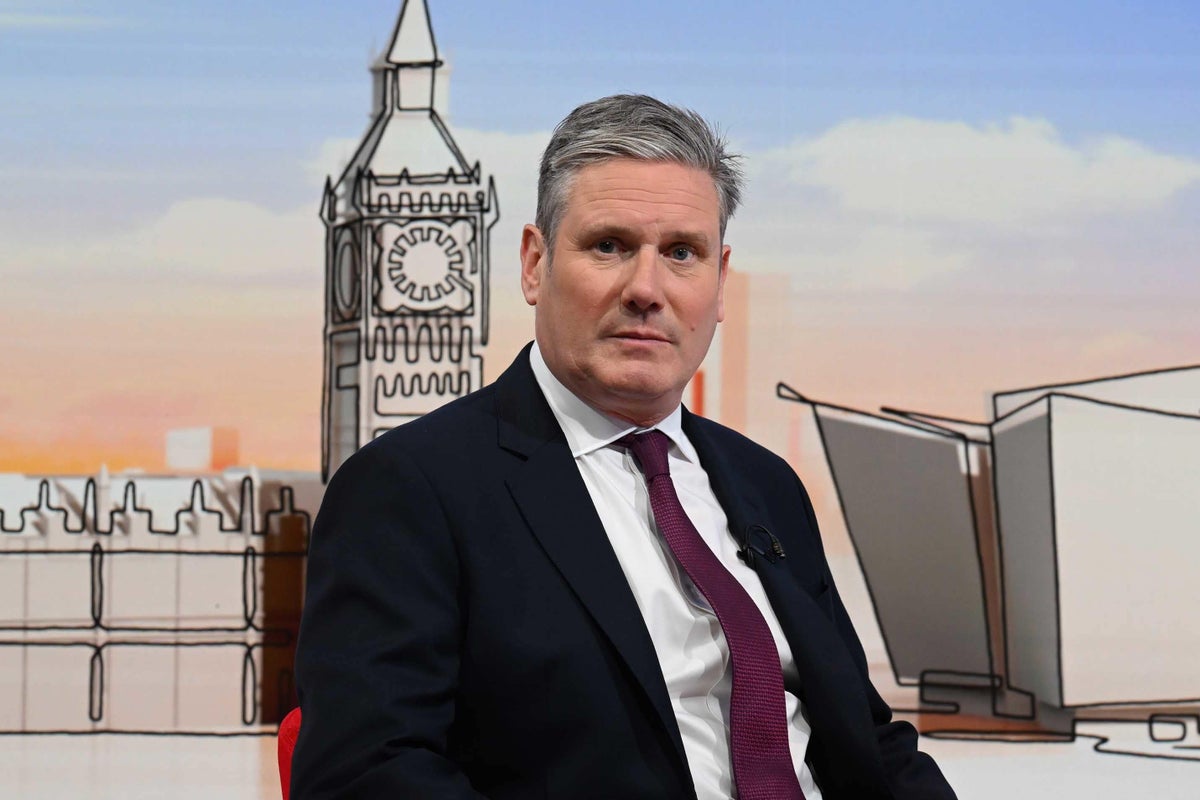
Sir Keir Starmer is facing backlash from Labour MPs over his plans to keep the Conservatives' two-child benefit cap, which has been blamed for pushing families into poverty.
The Labour leader confirmed the party's latest U-turn on Sunday, despite in 2020 stating that scrapping the policy was one of his “ideas to tackle the vast social injustice in our country.”
Sir Keir said when asked about his position on the two-child benefit cap: “We’re not changing that policy.” It comes despite growing calls from poverty campaigners for the cap to be abandoned.
Following the U-turn, one shadow minister told The Independent that there was “a lot of unhappiness” among MPs in the party with “a lot of lobbying” taking place for a change.
But what is the two-child benefit cap and how is it impacting families?
What is the two-child benefit cap?
The two-child cap prevents parents from claiming universal credit or child tax credit for a third or additional child born after April 2017.
The government classifies a child as “anyone aged under 16, or a young person aged under 20 who enrolled on, accepted or started full-time non-advanced education, such as A-levels, or approved training before they turned 19.”
However, exemptions apply for those who had children in a multiple birth or children conceived due to rape or coercion, though the exemptions policy has caused controversy as victims must disclose that they were raped in order to be deemed eligible, a provision described by opponents as the “rape clause”.
When was it introduced?
The policy was introduced in 2017 under the direction of former chancellor George Osborne, who posited that removing benefits eligibility for parents with a third child would “incentivise” parents to move into work and take up more hours.
Downing Street has confirmed that the current Conservative government will maintain the cap, with Rishi Sunak’s spokesperson stating: “There are no plans to change that that I’m aware of.”
The two-child benefit cap was introduced in 2017 under former chancellor George Osborne— (PA)
How has it impacted families?
Child Poverty Action Group states that the policy impacts around 400,000 families with 1,400,000 children, with parents missing out on approximately £3,000 each year for every third or subsequent child.
Elsewhere, one study published in July 2023, funded by the Nuffield Foundation and led by the University of York, in partnership with the University of Oxford and the London School of Economics, concluded that the policy is “poverty-producing.”
It also noted that the policy wielded a negative impact on mental health, increasing stress and presenting “knock-on” effects on children’s well-being.
How have Labour politicians reacted to Sir Keir’s U-turn?
A number of Labour frontbenchers have opposed the two-child cap in the past, including shadow transport secretary Louise Haigh, shadow business secretary Jonathan Reynolds and shadow levelling up secretary Lisa Nandy.
“It is extremely disheartening and contradictory to our policies to actually level up the country and bring children out of poverty to enable them to smash the class ceiling”, one shadow minister told The Independent, adding that the party needs to “win to make change”, but also “needs to offer hope to win.”
A left-wing Labour MP added that the U-turn raised questions about “what is the point of Labour?” They said: “If we are not going to prioritise the poorest children in this country, who have been victimised by one of austerity’s cruellest policies, then what is the point of us?
Meg Hillier, chair of the public accounts committee told BBC’s Westminster Hour: “Well, I was never comfortable about having the child benefit cap come in … personally, I’d be lobbying for a lifting of that.”
Meanwhile, Labour MP Zarah Sultana stated that it “absolutely should be abolished”, describing it as “an unspeakably cruel policy, inflicting destitution and misery on children and parents.”
Scottish Labour leader Anas Sarwar has positioned Scottish Labour as being opposed to the cap, noting that it will “press” Sir Keir to scrap it.







